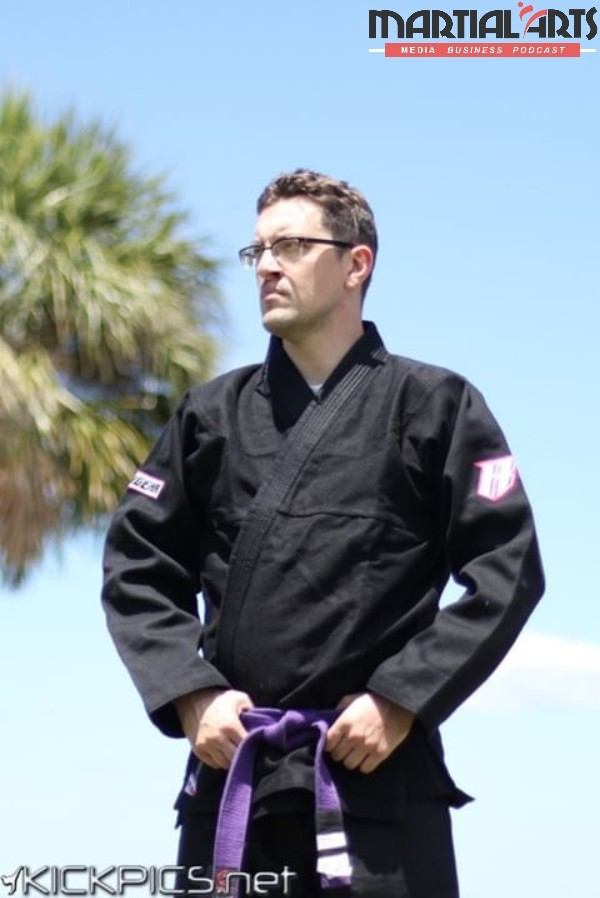Here’s my attempt to end the age-old debate about the pros and cons of having your club fees listed on your martial arts website.
IN THIS EPISODE:
- The honesty vs dishonesty debate about prices on martial arts websites
- The pros and cons of listing prices on your martial arts website
- Getting the best results from your martial arts website
- How an irresistible martial arts offer boosts your conversions
- When is it actually a good idea to list prices on your martial arts website?
- And more
*Need help growing your martial arts school? Learn More Here.
TRANSCRIPTION
Hey, it's George Fourie. Welcome to the Martial Arts Media™ Business Podcast. Today, I'm going to revise one of my first podcast episodes discussing, should you have your prices listed on your martial arts website?
Should you have your club fees listed? If you don't, what should you have listed? And if you do, how does that impact your sales and your conversions? And if you don't, are you just hiding stuff and being all weird?
All right. Let's dive in. Make sure you stick to the end, and I'll share with you a cool resource that you can have on your website that boosts your conversions and helps you sign up more students. All right. Let's dive in.
Having your prices listed on your martial arts website, should you do it or shouldn't you do it? I see this topic come up often, and I just dug through the archives of the Martial Arts Media™ Business Podcast, and I actually covered this on episode number four, my fourth podcast. It was 2016. And I wanted to have a look if my stance has changed on it. And I could say, “No, it hasn't,” but I want to give some context to what that stance was and where the exceptions to the rules are.
First up, short answer, is it a good idea to have your prices listed on your website? No, it's not a good idea. Now, what I've been noticing over the years is people get really weird when you say that. People go the whole honesty and dishonesty route.
People get really angry about this, that if you don't put your prices on your website, you're hiding stuff, and you're not being ethical, and you're being sleazy. And it gets really nasty, which I find really odd and weird.
I want to explain the psychology of why it's actually not a good idea to have your prices listed on your website, and it's actually the reverse. If you don't have your prices on your website, you are serving your potential prospects way better. You are able to establish way more value around what it is that you provide.
Let's dive into a few scenarios. As a recap of what is discussed in episode four, in the younger version, I had no beard and maybe the camera's a bit better. Hopefully, I've got this podcast thing a bit smoother, more relaxed, and better after a couple of years down.
All right, let's just cover one scenario. You've got a mom sitting in front of her computer. She's thinking about enrolling her child in martial arts. In context, she's never done martial arts before, she doesn't understand it, somebody might have told her it's a good idea, somebody might have mentioned it and said, “The benefits are X, Y, Z,” or she's done some Googling and researching, or maybe she's got a child that's being bullied. She's kind of figured out that martial arts could be a good thing for her child, but she knows nothing about it.
All right. She knows nothing about it, so she starts searching and she finds a couple of websites. Maybe she finds you and she finds another school. You know the other school, you know that you provide a way better service, provide a way better martial arts than the other school does, and this person is searching and all that they can compare with is price. Right?
Because let's face it, no matter how good your website copy is and whether you've done a really good job of conveying what your message is, your values, et cetera, when somebody doesn't know what they're looking for, there's one thing that they do understand and that's dollars.
So, they're going to revert to the dollars and think, “Well, if that club's this and that club's this, well, martial arts is martial arts. They don't know any better.” Potentially they're going to go for the cheaper option. Right? Because there's no value attached to this figure. The price of a martial arts class, how do you justify that?
So, because your price was listed on your website, you might have missed the chance to have the actual conversation with that person, because they just looked at it, and said, “Well, it was expensive. That's not what I want to pay.” And rightfully so. They don't want to pay that because they don't have any value attached to that price. They just see a price and a number, and they think they don't want to spend it.
Now, what if that person sat in front of you, and you showed them around your school, and you showed them the impact that you have on your students, and the value that they get, and your environment, and the club, and the quality, and the level of the instructors, and they got to experience that. Would they change their mind on the pricing? If they see, “well, this club is much cheaper, but you provide all this service.”
Would they have gone with you? Probably, yes. Right? Because they got to experience the surrounding, but also they got the opportunity to build a relationship with you. Right? So, this is where it's way better to not have a price on your website because the price is not what should be discussed.
Let's face it, the cost of martial arts classes, people could say it's expensive, but compared to what? Because people pay way more for a car or way more on a night out. People spend so much more money on things compared to martial arts. So, saying it's expensive is, well, against what? Because they're spending more money on other things. You have got to think of the value that you can attach to your martial arts classes.
So, what do you have instead? Well, you should be looking at, well, where can you have a conversation? Where can you have a conversation with your prospect? So, your website should rather be optimized for conversions and conversations. Can they make an online inquiry, enter their name, detail, number, and email, and inquire online? Or maybe you have a chat icon on your website. Or your number is visible and they can contact you directly, or you can have an irresistible offer.
What is an irresistible offer? You can download it on this page. Martialartsmedia.com/133, the number 133, and you can download our template, irresistible martial arts offer, the PDF worksheet, and we'll give you all the options of which numbers to use and how you can create an irresistible offer to promote your martial arts school.
Now, why would you want an irresistible offer instead of your club fees? Because the person that is just looking at the martial arts school, and they've never done martial arts before, and they might be nervous to give it a shot, but if they see an offer that’s irresistible, and there's value in it, and it feels risk-free because remember, this person is not… they're not sold on martial arts, potentially. Very few would be. Right? But more than likely, they would not be sold on martial arts hook, line, and sinker, so they're probably going to be hesitant. Right?
So, we want to give them something that's of value, that they can try out, and what do we know? We know that if they try it out, and they're going to walk in, and they're going to experience it, then yeah, that person that was skeptical or was looking, has now completely changed to a person that's engaged and sold on the idea of martial arts, almost all martial arts school owners will tell me we've got no problem signing people up once they're through the door. Right? Because that's where the experience changes.
So, why would you want to put obstacles in the way of them getting through the door? Makes sense. Right? I hope it does.
Now again, I've seen people get a bit weird about this. And I've seen well-respected martial arts school owners and coaches get really weird and hung up about this. Maybe because they were annoyed with a certain group that maybe appeared like they were unethical and spammy and they promoted not having prices on the website, and then they just deemed the idea as how those people approach the business world. And I can understand that.
But what's important is to just take a step back and think, “Well, if I'm trying to serve my potential students the best, and I know I provide the best service, and the best martial arts, and create the biggest impact on my students, then I've got to do everything humanly possible to make sure that happens,” and that you can sign them up and change their lives, because you're really doing them a disservice if you don't sign them up. It's really in their best interest.
Now, what I didn't cover the first time I covered this topic was exceptions to the rule. Where would it maybe be a good idea to have your prices listed on your website? I want to be funny, but it's probably not funny. I say this tongue in cheek and not. You hate money. You think everybody is a McDojo that is more successful than you and charges more money than you, has more students than you, and you don't want to attract any more students. Right. Maybe true. Maybe not. Let's just take that for a grain of salt.
But here's a real exception to the rule. Right? A real exception to the rule is your brand exceeds the availability of students that you have. You have a huge reputation in the industry and people that… maybe it's an MMA or jiu-jitsu, or you are just seen as a professional martial artist that people typically follow and want to train with. So, your brand and reputation way exceeds the market demand. And you want to let people know that you are the premium martial arts school, and this is what you pay and you don't want time wasted. Now, just be careful about this.
You obviously got to be in demand to be able to repel the people that you don't want to train with you, and we've got a few clients like that, where the leads are just so many that we structure our irresistible offer in a way that is a few hundred dollars extra, that the average inquiry will probably look at it and say, “No, that's not for me.” It does repel people, and they don't take up the offer.
So, number one, your demand exceeds your supply. You've got leads coming in, everyone wants to train with you, and you put your price at a premium and you want people to know that. Or you are super famous and you are well known and respected in the space, and you want people to know that you are the premium provider.
And then number three, you have a martial arts school at a holiday destination or place where people visit often and maybe they just come for two weeks or three weeks, and you've got packages available where people can train. Then that'll be a good idea to have your price listed on your website because then people know when they travel, what is available, and what they can do. Other than that, I still stand by episode number four, the best idea to not have your prices on your website.
What to do next? Well, if you want to know what you can put on your website, the one thing that makes or breaks in the conversation is the irresistible martial arts offer. Now, obviously, there are a few more components. Right? But if somebody has been looking around, and they're comparing clubs, and they're looking around and they get to your website and you provide an irresistible offer that feels like the risk is on you as the martial arts school owner and not on them, it feels like they can try it out.
We know we don't want them to try it out, but we want to remove the risk of them trying it out. Then head over to this podcast page, martialartsmedia.com/133, and download the irresistible martial arts offer worksheet. And that'll get you started.
Anyway, thanks again for watching. Do go check out episode number four, just for its good value, and just for a laugh, a laugh just because it's super old and probably good to know that I haven't changed my stance on any of the things I discussed a good five years ago. Anyway, thanks again for watching. Thanks for listening. I'll see you in the next episode. Cheers.
Here are 3 ways we can help scale your school right now.
1. Download the Martial Arts Media™ Mobile App.
It's our new private community app exclusive for martial arts school owners, with top courses, online events, and free resources to help grow your business. Click here to download it for iPhone or Android (any other device).
2. Join the Martial Arts Media™ Academy Membership and become a Case Study.
I'm working closely with a group of martial arts school owners this month to get to 100+ students. If you'd like to work with me to help you grow your martial arts school, get started with our 7-day risk-free trial – Click Here
3. Work With Me and My Team Privately.
If you would like to work with me and my team to scale your school to the next level, fill out the form and apply HERE … tell me a little about your business and what you would like to work on together and I'll get you all the details – Click Here
Enjoyed the show? Get more martial arts business tips when you subscribe on iTunes for iPhone or Stitcher Radio for Android devices.
***NEW*** Now available on Spotify!










